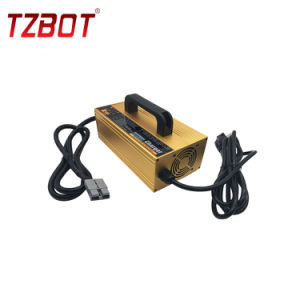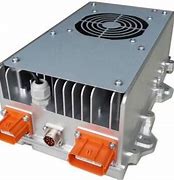As the world shifts towards sustainable transportation solutions, electric vehicles (EVs) have emerged as a prominent player in the automotive industry. With this surge in electric mobility comes the crucial component of on-board chargers (OBCs), which serve as the lifeline for recharging EV batteries. Understanding the nuances of on board charger design is vital for both manufacturers and consumers alike. So, what exactly should one look for in on-board charger design? Let's delve into the essentials.
Efficiency and Power Rating:
Efficiency is paramount when it comes to on-board charger design. A high-efficiency charger ensures minimal energy loss during the charging process, translating to lower electricity bills and reduced environmental impact. Additionally, the power rating of the charger dictates the charging speed. Opting for a higher power rating means faster charging times, ideal for those who rely heavily on their EVs for daily commutes or long journeys.
Compatibility and Flexibility:
Compatibility with various charging standards and voltages is another crucial aspect to consider. An adaptable on-board charger can accommodate different charging infrastructures, including AC Level 1, AC Level 2, and DC fast charging. Moreover, flexibility in voltage input allows EV owners to charge their vehicles from a diverse range of power sources, be it residential outlets or public charging stations.

Size and Weight:
Incorporating an on-board charger into an EV necessitates balancing performance with size and weight constraints. A compact and lightweight charger not only maximizes vehicle space but also minimizes the overall weight, contributing to improved efficiency and driving range. Manufacturers must strike a delicate balance between form factor and functionality to ensure seamless integration without compromising on performance.
Thermal Management:
Efficient thermal management is indispensable for on board charger longevity and safety. Heat generated during the charging process must be dissipated effectively to prevent overheating and component degradation. Incorporating features such as thermal sensors, cooling fans, and heat sinks helps maintain optimal operating temperatures, ensuring reliable performance under varying environmental conditions.
Smart Charging Capabilities:
The advent of smart charging technologies has revolutionized the EV charging landscape. On-board chargers equipped with intelligent features, such as Wi-Fi connectivity, mobile app integration, and scheduling capabilities, empower users with greater control and convenience. Smart chargers can optimize charging schedules based on electricity tariffs, grid demand, and user preferences, thereby enhancing energy efficiency and cost-effectiveness.

Reliability and Durability:
Reliability is non-negotiable when it comes to on-board charger design. Components must withstand rigorous operating conditions, including temperature extremes, vibrations, and voltage fluctuations, without compromising performance or safety. Robust construction and adherence to stringent quality standards are imperative to ensure long-term durability and peace of mind for EV owners.
Regulatory Compliance:
Compliance with regulatory standards and certifications is a fundamental requirement for on-board charger manufacturers. Adhering to industry-specific norms and safety regulations, such as SAE J1772, IEC 61851, and UL 2202, instills confidence in the reliability and safety of the charging system. EV owners should prioritize chargers that meet or exceed these standards to mitigate potential risks and ensure compatibility with existing infrastructure.
In conclusion, on-board charger design plays a pivotal role in the performance, efficiency, and usability of electric vehicles. By considering factors such as efficiency, compatibility, size, thermal management, smart capabilities, reliability, and regulatory compliance, both manufacturers and consumers can make informed decisions when selecting an on-board charger. Embracing advancements in charger technology not only enhances the EV ownership experience but also contributes to the widespread adoption of sustainable transportation solutions.
Next:What are the different types of Onboard Chargers (OBC)?
Previous: 3kW High Power Density On-Board Charger
Contact Person: Miss. Kiki
| WhatsApp : | +8617763224709 |
|---|---|
| Skype : | +8617763224709 |
| WeChat : | +8617763224709 |
| Email : | kiki@lifepo4-battery.com |